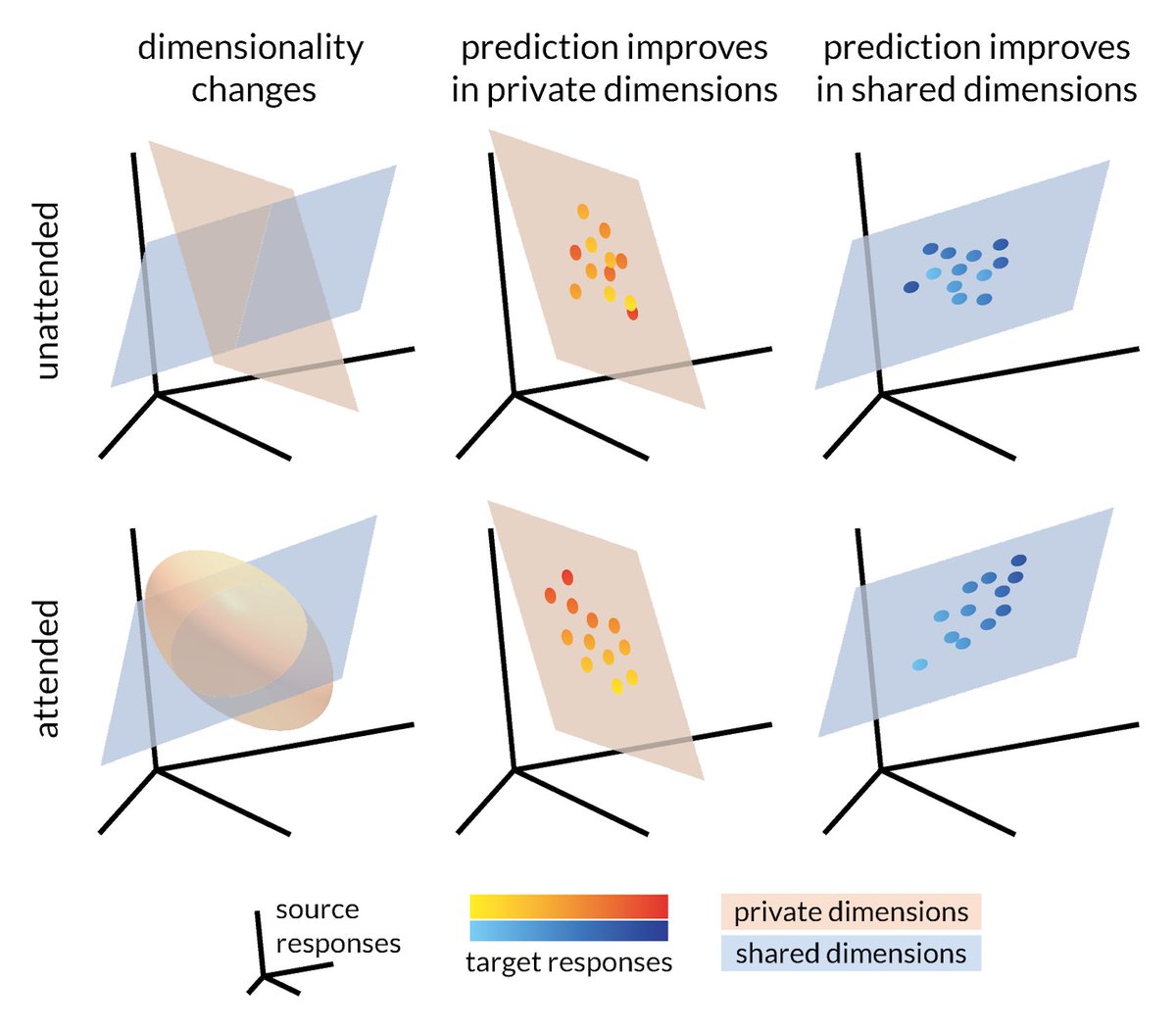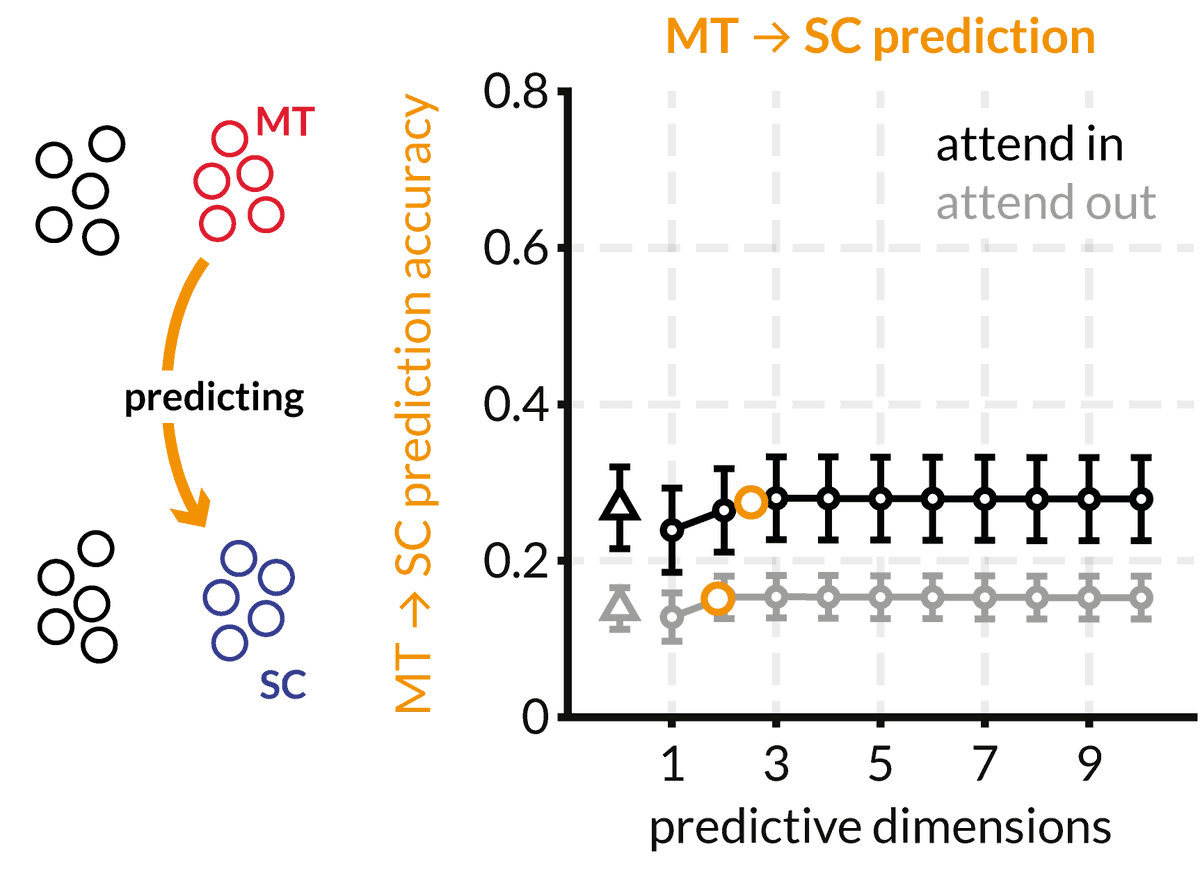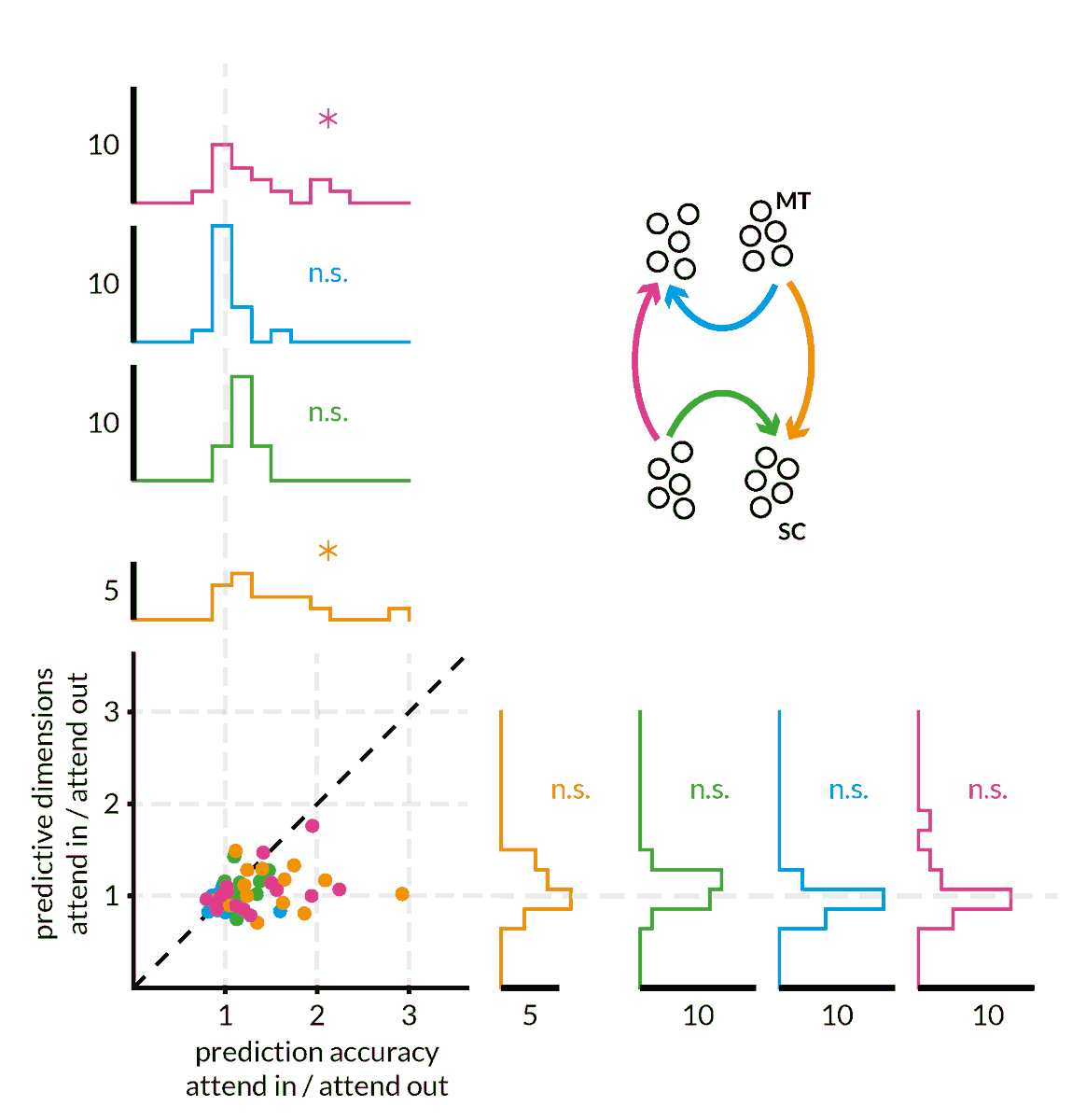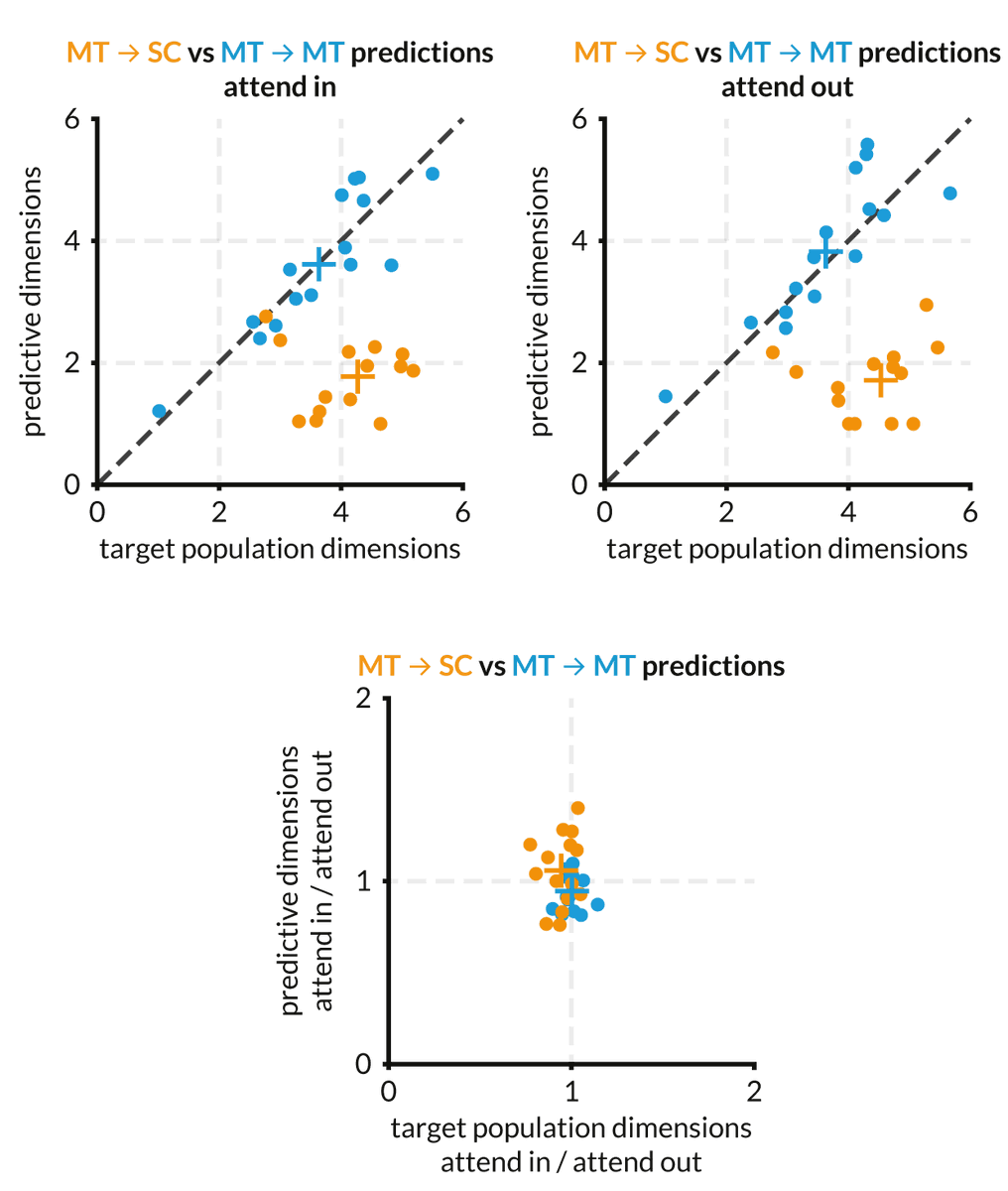
It's a new paper day, so here goes my very first #tweeprint! It was a pleasure to work on this with the incredible Ramanujan Srinath and Doug Ruff. doi.org/10.1101/2021.0…
1/10
1/10
We can use visual information in very flexible ways (you might grab or ignore an ice cream cone depending on whether it's yours), which means that visual information must be routed through our brains flexibly through processes like selective attention 2/10
Contrary to my favorite hypothesis (!), we showed recently that attention does not substantially change the amount of visual information in visual cortex. nature.com/articles/s4159… 3/10
So maybe a critical function for attention change is to change information flow between two brain areas. One way to test this is to figure out how well we can predict population responses in one area from the population responses of the other in each attention state. 4/10 

We could also find out how many dimensions of neural population space this prediction requires. If it is fewer than the number of neurons, then the two areas communicate via a "subspace" of activity. (Semedo et al showed recently that V1 and V2 communicate via a subspace) 5/10
We used reduced rank regression to predict the activity of decision neurons in the superior colliculus from visual neurons in area MT. Attention improves prediction! 6/10 

Across sessions, attention improved inter-areal predictions, but not within-area predictions. There was no change in the number of dimensions required to do this prediction. 7/10 

So, MT and the SC communicate via a subspace, but attention does not affect the dimensionality of this subspace. 8/10 

These results show that wonderful analysis methods from Joao Semedo, @YuLikeNeuro, Adam Kohn, Christian Machens and colleagues (our collaborators through @SCglobalbrain) provide a powerful way to understand how cognition affects behavior 9/10
Our results mean that cognition probably doesn’t change the amount of sensory information in your brain, but it does change which information is shared with the neurons that compute decisions. Thanks for reading, and we’d be grateful for your feedback! /fin
• • •
Missing some Tweet in this thread? You can try to
force a refresh


